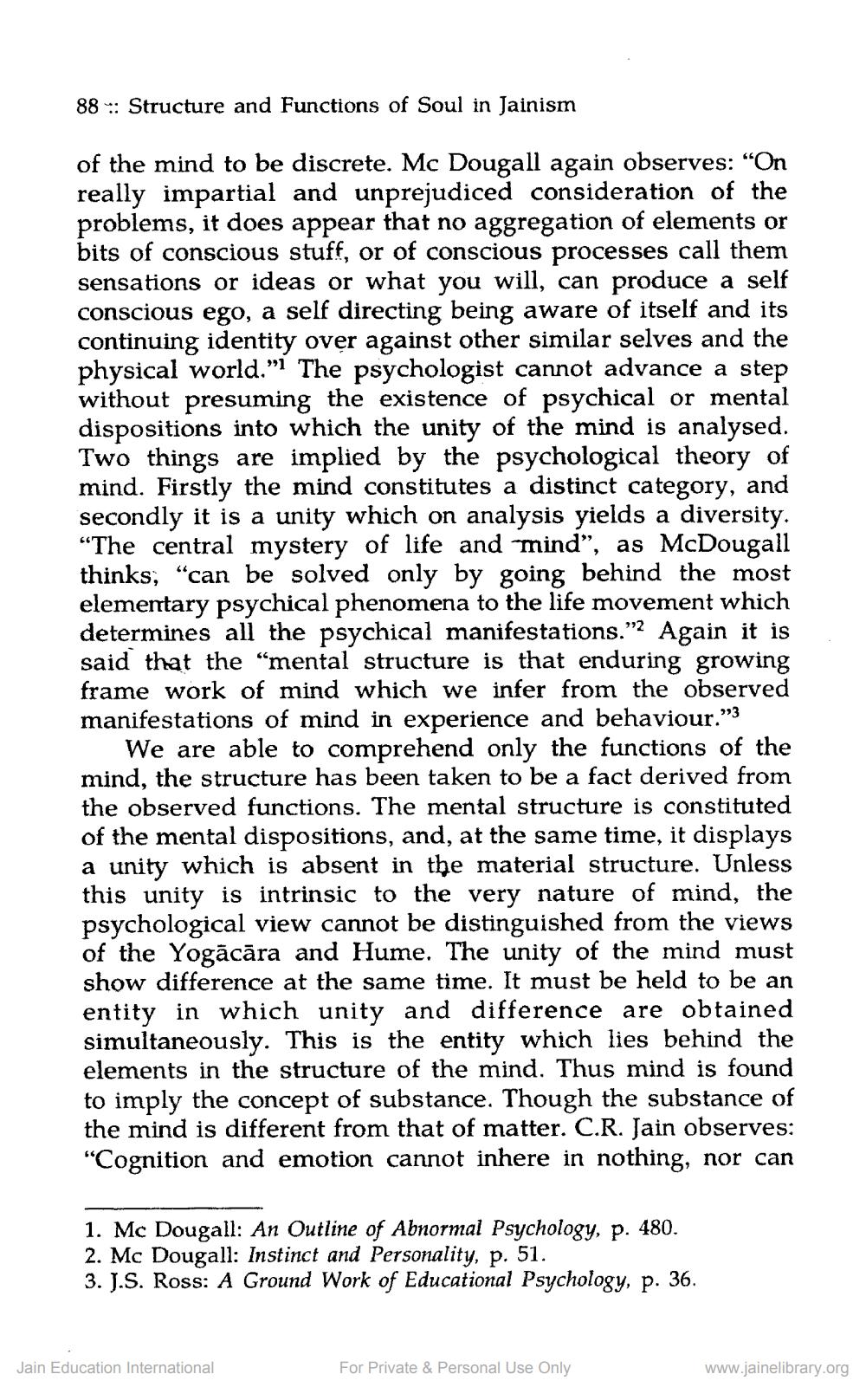________________
88 :: Structure and Functions of Soul in Jainism
of the mind to be discrete. Mc Dougall again observes: “On really impartial and unprejudiced consideration of the problems, it does appear that no aggregation of elements or bits of conscious stuff, or of conscious processes call them sensations or ideas or what you will, can produce a self conscious ego, a self directing being aware of itself and its continuing identity over against other similar selves and the physical world." The psychologist cannot advance a step without presuming the existence of psychical or mental dispositions into which the unity of the mind is analysed. Two things are implied by the psychological theory of mind. Firstly the mind constitutes a distinct category, and secondly it is a unity which on analysis yields a diversity. “The central mystery of life and mind”, as McDougall thinks; "can be solved only by going behind the most elementary psychical phenomena to the life movement which determines all the psychical manifestations."? Again it is said that the “mental structure is that enduring growing frame work of mind which we infer from the observed manifestations of mind in experience and behaviour.”3
We are able to comprehend only the functions of the mind, the structure has been taken to be a fact derived from the observed functions. The mental structure is constituted of the mental dispositions, and, at the same time, it displays a unity which is absent in the material structure. Unless this unity is intrinsic to the very nature of mind, the psychological view cannot be distinguished from the views of the Yogācāra and Hume. The unity of the mind must show difference at the same time. It must be held to be an entity in which unity and difference are obtained simultaneously. This is the entity which lies behind the elements in the structure of the mind. Thus mind is found to imply the concept of substance. Though the substance of the mind is different from that of matter. C.R. Jain observes: "Cognition and emotion cannot inhere in nothing, nor can
1. Mc Dougall: An Outline of Abnormal Psychology, p. 480. 2. Mc Dougall: Instinct and Personality, p. 51. 3. J.S. Ross: A Ground Work of Educational Psychology, p. 36.
Jain Education International
For Private & Personal Use Only
www.jainelibrary.org




